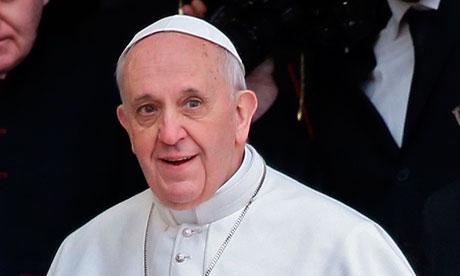 By Alan Bean
By Alan Bean
We live in a post-denominational world. This does not mean the distinction between a Presbyterian and a Methodist, or between a Roman Catholic and a Protestant, has become meaningless. But, especially among the young, denominational distinctions are strictly secondary. I am not a Roman Catholic, but I see Pope Francis as a spiritual leader, my spiritual leader, not because he holds a particular office, but because he is a man of wisdom and spiritual discernment.
Does this mean that Pope Francis, or any other religious leader, is always right? Perhaps we should let the Holy Father answer that question himself. This brief excerpt is taken from the latter part of the full interview with Pope Francis recently published in the National Catholic Review.
Certitude and Mistakes
I ask, “So if the encounter with God is not an ‘empirical eureka,’ and if it is a journey that sees with the eyes of history, then we can also make mistakes?”
The pope replies: “Yes, in this quest to seek and find God in all things there is still an area of uncertainty. There must be. If a person says that he met God with total certainty and is not touched by a margin of uncertainty, then this is not good. For me, this is an important key. If one has the answers to all the questions—that is the proof that God is not with him. It means that he is a false prophet using religion for himself. The great leaders of the people of God, like Moses, have always left room for doubt. You must leave room for the Lord, not for our certainties; we must be humble. Uncertainty is in every true discernment that is open to finding confirmation in spiritual consolation.
“The risk in seeking and finding God in all things, then, is the willingness to explain too much, to say with human certainty and arrogance: ‘God is here.’ We will find only a god that fits our measure. The correct attitude is that of St. Augustine: seek God to find him, and find God to keep searching for God forever. Often we seek as if we were blind, as one often reads in the Bible. And this is the experience of the great fathers of the faith, who are our models. We have to re-read the Letter to the Hebrews, Chapter 11. Abraham leaves his home without knowing where he was going, by faith. All of our ancestors in the faith died seeing the good that was promised, but from a distance…. Our life is not given to us like an opera libretto, in which all is written down; but it means going, walking, doing, searching, seeing…. We must enter into the adventure of the quest for meeting God; we must let God search and encounter us.
“Because God is first; God is always first and makes the first move. God is a bit like the almond flower of your Sicily, Antonio, which always blooms first. We read it in the Prophets. God is encountered walking, along the path. At this juncture, someone might say that this is relativism. Is it relativism? Yes, if it is misunderstood as a kind of indistinct pantheism. It is not relativism if it is understood in the biblical sense, that God is always a surprise, so you never know where and how you will find him. You are not setting the time and place of the encounter with him. You must, therefore, discern the encounter. Discernment is essential.
“If the Christian is a restorationist, a legalist, if he wants everything clear and safe, then he will find nothing. Tradition and memory of the past must help us to have the courage to open up new areas to God. Those who today always look for disciplinarian solutions, those who long for an exaggerated doctrinal ‘security,’ those who stubbornly try to recover a past that no longer exists—they have a static and inward-directed view of things. In this way, faith becomes an ideology among other ideologies. I have a dogmatic certainty: God is in every person’s life. God is in everyone’s life. Even if the life of a person has been a disaster, even if it is destroyed by vices, drugs or anything else—God is in this person’s life. You can, you must try to seek God in every human life. Although the life of a person is a land full of thorns and weeds, there is always a space in which the good seed can grow. You have to trust God.”
